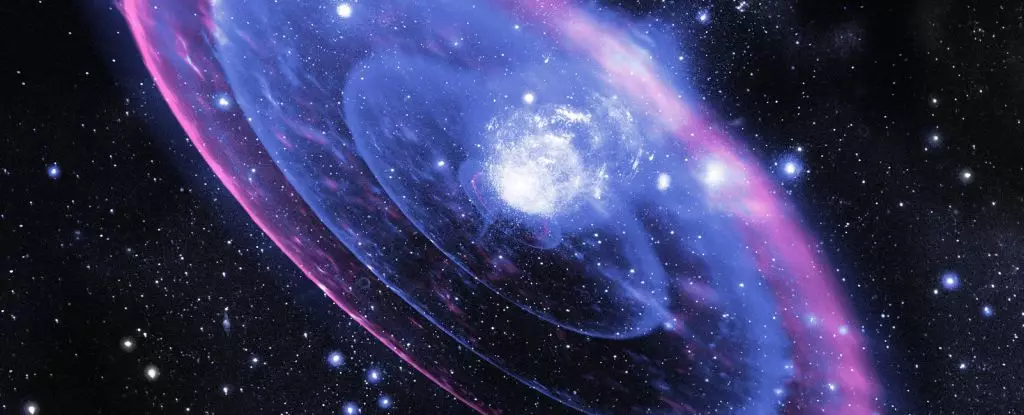

A recent discovery in Antarctica has shed light on the presence of a unique grain of olivine in an ancient meteorite. This speck of olivine displays isotope compositions that can only be traced back to a star that perished long before the birth of our Solar System. These presolar grains, although challenging to identify due to their minuscule size and deep embedding in meteorite rock, offer valuable insights into different stellar environments and the potential for planet formation.
A team led by astrogeologist Nicole Nevill from the Lunar and Planetary Institute in Houston made this groundbreaking discovery utilizing atom probe tomography. Through this technique, they analyzed the olivine presolar grain and uncovered unprecedented isotopic ratios pointing to its extraterrestrial origins. As Nevill explained, the magnesium isotopic ratio found in this grain significantly surpassed any previously recorded values, indicating a formation process within a hydrogen-burning supernova.
Meteorites serve as cosmic time capsules, offering glimpses into the past and revealing intricate details about dust composition and planetary formation. While most meteorites originate from within our Solar System, occasional discoveries of presolar grains provide invaluable information about outer space environments. The identification of the olivine grain in the Antarctic meteorite Allan Hills 77307 showcased a unique magnesium isotopic signature, hinting at its formation in a supernova event.
The use of atom probe tomography in this research not only unveiled the extraordinary composition of the presolar grain but also provided a deeper level of insight into stellar evolution. By studying the olivine grain at a microscopic scale, researchers were able to determine the high proportion of magnesium-25, a hallmark of hydrogen-burning supernovae. This detailed analysis opens new avenues for understanding the formation and characteristics of these rare stellar events.
While this discovery marks a significant advancement in our understanding of presolar grains and supernova origins, it also highlights the evolving capabilities of scientific exploration. The ability to pinpoint and examine such minute celestial artifacts demonstrates the remarkable progress in astronomical research. As we continue to unravel the mysteries hidden within meteorites, new revelations about the cosmos and our place in it are sure to emerge.
The discovery of unusual presolar grains in Antarctic meteorites represents a triumph of scientific inquiry and technological innovation. By delving into the infinitesimal details of cosmic remnants, researchers are pushing the boundaries of knowledge and expanding our comprehension of the universe. The quest to unravel extraterrestrial secrets continues, fueled by curiosity and a relentless pursuit of truth in the vast expanse of space.
In the realm of software development, the ability to swiftly and accurately address bugs is…
The realm of quantum computing and communication is not just an abstract dream anymore; it…
In a remarkable leap for the field of material science, a collaborative research initiative has…
Throughout Earth's vast history, our planet has endured five major mass extinction events that reshaped…
Rainfall is a vital element of our planet’s hydrological cycle, yet many aspects of its…
On a night when the universe aligns, a mesmerizing phenomenon awaits: the appearance of the…
This website uses cookies.